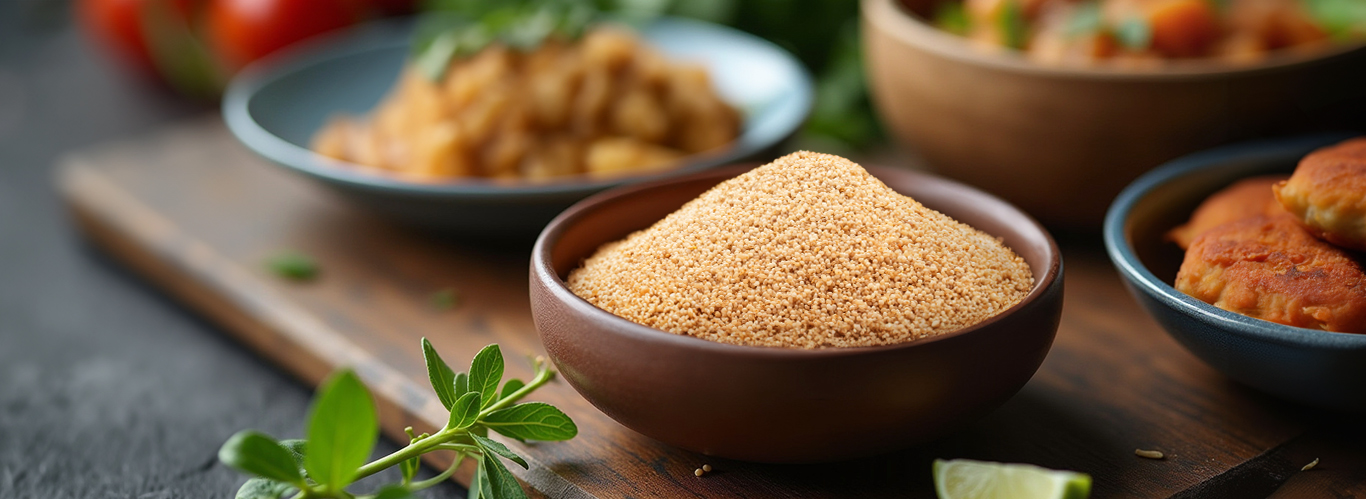Introduction
A Bengali meal must include posto. Whether it’s a leisurely Sunday brunch or a weekday lunch, there’s always room on the plate for a comforting posto dish. The love for dishes with poppy seeds runs deep in Bengal – almost like the unsaid rule of good eating.
This humble ingredient is not only food, but it's also a source of nostalgia, from the famous aloo posto to crispy golden posto bora, it reminds every Bengali of home.
But why do Bengalis love dishes with poppy seeds? What makes posto such an intergral part of Bengal’s culinary heritage? Let’s take a deep dive into this fascinating region.
Cultural Significance of Posto in Bengal
Bengalis believe that food is more than just eating. For generations, this has been a ritual and sentiment. And in this long, delicious story, posto plays a starring role.
A well-made posto dish melts in your mouth, with a slight bitterness giving way to a nutty, creamy texture, heightened by the pungent tasteof mustard oil. It’s simple, yet it makes you remember childhood memories of lazy Sunday lunches at your grandmother’s house.
Historically, posto became popular in Bengal during the British colonial era, when poppy cultivation was widespread. While the British traded opium, Bengalis discovered that the leftover seeds made for an exquisite ingredient in their everyday meals. Today, whether it’s the silky smoothness of begun posto or the subtle bite of poppy seed chicken, posto continues to hold its place as a beloved staple.
Demystifying Posto: Types & Preparation
Posto might look small, but it demands care. The key to unlocking its signature creaminess? Is buying Whole Poppy Seeds that are fresh, unadulterated, and packed with flavour.
How to Prepare Posto Like a Pro
1. Soaking Matters: Always soak posto in warm water for about 30 minutes before grinding. This softens the seeds and enhances their texture.
2. Grinding Technique: The traditional way is to use a shil-nora (grinding stone), but a mixer-grinder works too. The goal is to achieve a smooth, paste-like consistency.
3. Texture Preference: Some prefer it silky smooth, while others like a slightly coarse grind—each method brings out a different depth of flavour in the dish.
Once you’ve got your paste ready, you’re set to whip up some of Bengal’s most iconic posto-based dishes.
Exploring Bengali Posto Recipes
The essence of Bengali cuisine lies in the use of simple ingredients to transform them into something extraordinary. And Posto offers endless possibilities! Here are a few poppy seed dishes:
Aloo Posto: The Timeless Classic
If posto had a signature dish, this would be it. Soft potatoes simmered in a velvety poppy seed paste, tempered with mustard oil and green chillies—it’s simplicity at its best. Pair it with dal and rice, and you’ve got yourself a meal that feels like home.
Posto Bora: The Ultimate Crunch
Think of these as posto’s crispy little cousins. Small patties made from ground posto, lightly spiced and deep-fried until golden. Crunchy on the outside, soft inside—these are addictive with a cup of tea or as a side with dal-bhaat.
Begun Posto: The Smoky Surprise
Brinjal (begun) and posto are a match made in culinary heaven. The soft, smoky texture of brinjal beautifully soaks up the nutty, creamy posto paste, creating a dish that’s simple yet bursting with flavour.
Poppy Seed Chicken: A Unique Twist
Who says posto is just for vegetables? Bengali cuisine also boasts an exquisite poppy seed chicken recipe where tender chicken pieces are slow-cooked in a posto and yoghurt-based gravy. The nuttiness of posto gives the dish a mild, creamy texture that pairs wonderfully with steamed rice or parathas.
Cooking Tips for Using Posto in Bengali Recipes
Want to master the art of cooking with posto? Here are a few handy tips:
- Always use mustard oil: That extra punch of pungency balances posto’s creaminess perfectly.
- Don’t rush the grinding process: A well-ground posto paste ensures a rich, silky texture in your dishes.
- Less is more: Posto has a subtle bitterness, so using it in moderation enhances, rather than overpowers, the dish.
- Experiment: While traditional recipes are wonderful, don’t be afraid to try posto in contemporary dishes like stuffed parathas or even fusion pastas.
Conclusion
The love for posto in Bengal is not solely about taste — it's also about legacy, comfort, and a profound attachment to home-cooked goodness. From the simple dish aloo posto to the crunchiness of posto bora, or the generously rich poppy seed chicken, this tiny magic seed continues its enchantment in Bengali kitchens.
And, if you wish to accentuate the taste of your posto recipes, quality is non-negotiable. For all the culinary wonders with poppy seeds, Sunrise Whole Poppy Seeds guarantees richness, aroma, and authenticity.
FAQs
1. What makes posto such a popular ingredient in Bengali cuisine?
The uniqueness of posto lies in its ability to add both creaminess and a slight nutty bitterness to dishes. It goes well with mustard oil and simple spices, making it a standard ingredient in Bengali kitchens.
2. Can posto be used in non-vegetarian recipes?
Yes! Posto is a versatile ingredient that can be used in vegetarian dishes, chicken, and fish dishes, adding depth and a rich texture
3. How do I store posto for maximum freshness?
To preserve the freshness of posto, store it in an airtight container in a cool and dry place. To extend its shelf life, you could also refrigerate it. Sunrise Whole Poppy Seeds are packed to retain freshness, so you get the best quality every time.
